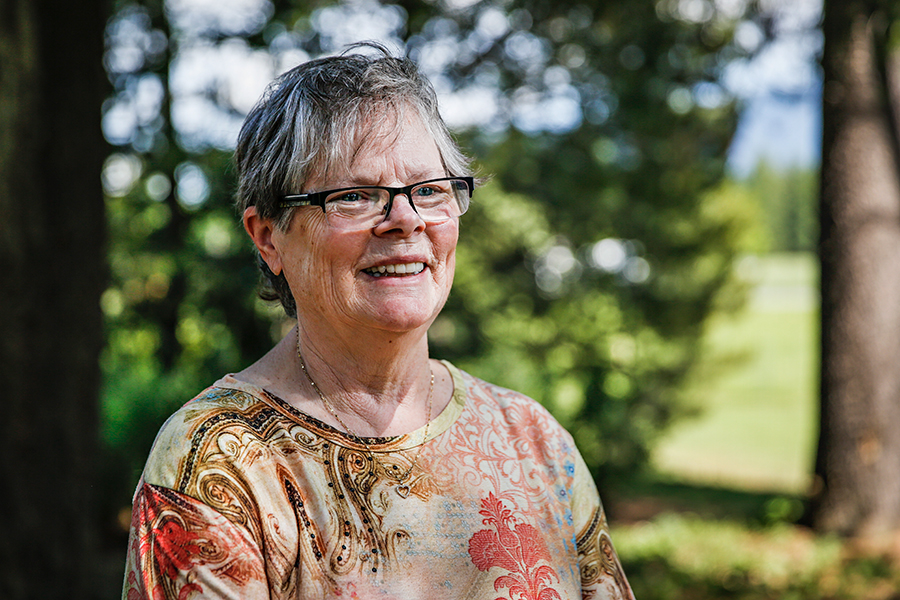No-Cost Mediation Pilot Program Shows Promise in Flathead County
Early Resolution and Mediation Project (E-RAMP) uses volunteer mediators to craft parenting plans for qualified petitioners; Advocates say program shows value of mediation system
By Andy Viano
Parenting battles can be downright nasty. Emotions are high. Young lives are at stake. And the parties arguing over who should get to do which things when typically haven’t arrived at this point with their relationship in a good place.
But what if the whole thing could be over in a day, and at the end of that day two parents who will — like it or not — have to cross paths hundreds or thousands of times through the course of their kids’ lives could walk out of the courthouse with a newfound understanding of one another, and open channels of communication that could have untold positive effects on their children for years to come?
For some separating parents in Flathead County, that’s not just fantasy.
The Early Resolution and Mediation Project, known as E-RAMP, began here in 2018 and as the program’s creators look to expand it into other jurisdictions, the stakeholders in Flathead County have almost universal praise for the completely volunteer system that is offered at no cost to the participants.
“I really believe in it,” Patty Fain, Montana’s statewide pro bono coordinator and one of the people who spearheaded the creation of the program, said. “I believe in the whole concept for parents, for kids and what it does for our community.”
To Fain and more than a dozen others who were part of an initial committee to organize E-RAMP, the benefits of the program are wide-ranging and shed light on a little-known piece of the justice system. E-RAMP is a facilitated mediation, meaning the two parties in conflict — in this case typically parents seeking to complete a parenting plan as part of a divorce — sit in a room with a mediator and hash out their disagreements right then and there, instead of through lengthy court proceedings. Mediators, unlike judges, are there to steer conversations in a productive direction and help the arguing parties find solutions themselves, instead of having judgment meted out from the bench.
“What you do is you let people talk,” Kay Lynn Lee, a retired attorney and one of the E-RAMP mediators in Flathead County, said. “You try to guide them, so instead of getting on a blame train they do some creative thinking and try not to look at what’s happened in the past … a lot of times just getting them in a neutral arena and talking to each other instead of at each other, that’s a big help.”
Lee has led a handful of mediations since the first case was directed to E-RAMP in January 2018, and she says that compared to her experience in family court, where cases are frequently bitter and can sometimes take years to resolve, the results have been encouraging. Qualified E-RAMP cases are diverted from a district court judge and referred to one of about two dozen volunteer mediators who have been trained specifically to handle these types of cases.
“Litigating’s really tough. Nobody wins, and I mean nobody,” Lee said. “The judges don’t win, the attorneys don’t win, the (litigators) don’t win. Kids certainly don’t win. With mediation, at least you’ve got two people coming together and trying to get it resolved without having a whole lot of outside influence.”
The program grew out of a conversation between Fain and Montana Supreme Court Justice Laurie McKinnon, who was interested in raising greater awareness of mediation and filling a need for pro bono legal support in family law cases. Fain researched similar programs around the nation and formed the organizational committee that decided to roll out E-RAMP in the 11th District Court in Kalispell, where the intention is also that moving family law cases can clear space in bloated court dockets. Judges in Flathead County are urged to spot cases that might qualify for E-RAMP early in the process, and once both parties agree to the program a resolution can be reached as early as two months from the day the initial parenting plan was filed.
One of the reasons Flathead County was chosen for the pilot program was the availability of mediators who were willing to work and attend trainings without being paid. E-RAMP has no funding, so everyone involved participates pro bono, and as a result the program currently is limited to cases that fit specific criteria. To qualify for E-RAMP, both litigating parties must earn less than 150% of the federal poverty line, be self-represented (without attorneys) and no cases that involve or appear to involve any domestic violence are eligible. Mediators are trained specifically to re-direct cases with a “power imbalance” back to a district court judge.
The hope, however, is that proof of success through E-RAMP can lead to an expansion of the program or an expanded use of facilitated mediation around the state. So far, 34 cases have run through E-RAMP in Flathead County, and many involved in the program see the potential for directing even more disputes through something like E-RAMP, both parenting plans and other civil litigations, especially if funding could be secured to pay mediators. The program is expected to roll out in additional district courts around Montana in the coming months.
“We have to always look at whether our services are addressing peoples’ needs,” Justice McKinnon said. “We’re there to help people with their problems and it’s a no-brainer that we would be doing something like this, offering this forum.”
For more information on E-RAMP, visit https://courts.mt.gov/eramp.